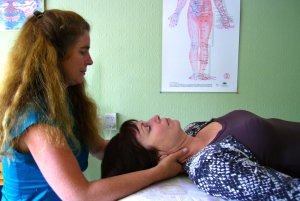A Simple Solution for Depression? It Doesn’t Exist
T.S. Eliot wrote, “We should not cease from the investigation, and the end of all our investigating will be to arrive where we began and know the place for the first time.”
I remembered those words as I strolled around the Holistic Health Fair in Annapolis the other day. Introduced by the Maryland University of Integrative Health, it occupied three floors of the Loews Hotel devoted to massage therapists, acupuncture specialists, detox experts, yoga instructors, and professionals from all kinds of local healing and wellness centers.
Ironically, they were all similar experts that I met 10 years ago when, at the lowest point of my breakdown, I chose to drop modern science like a boyfriend with bad breath and go the holistic route. I was assured that somebody had the one and only solution that would heal me of my inner demons, the magic urn of ancient cat pee that, with only three sniffs of prehistoric urine, could set my psyche back in balance. So I asked everyone I knew: “Where is the path to the magic urn?” And they all pointed me in various directions.
I followed all the paths. To yoga trainers and acupuncture professionals and massage therapists and recommended naturopaths. I took Chinese herbs and banged magnesium packets against phone books because that’s what the instructions said. I paid psychics to describe the shade of my aura, and to tell me what helpful and frightening things it had to say about my inner life. I listened to tapes of mystic healers like Caroline Myss as I knelt in child pose in our bedroom closet with a candle lit.
I listened to friends and relatives who told me that my medication was poisonous, so I weaned off almost all of my drugs.
I did not get better.
In fact, I got worse and was hospitalized a second time.
Like most psychiatrists, mine tried a few combinations of drugs and recommended that I return to psychotherapy.
I got a little better, but the remission lasted just two years.
After ten years, I know the hard truth: There is no basic response to depression.
If somebody tells you they have the cure — whether it be Prozac or Chinese herbs or an anti-stress oil for $30 or six amazing sessions of therapy — my guess is that they are more concerned about paying their mortgage than being a companion with you along your health journey. Nobody who has spent less than a year with you can truly know what you need to feel better. And if it does not need to hard work on your part — like getting up in the morning to exercise, or eliminating alcohol, sugar, and processed foods from your diet, or exploring some type of relaxation and meditation tool you will use every day to de-push — it won’t last.
Unfortunately, nothing worth having comes easy, similar the Sheffield band said.
As I walked around the room the other day, I felt older and wiser. The gray hair framing my face and the crows feet around my eyes showed the difference between my identity ten years prior and today. But more so I noticed the newfound confidence I have in my own health philosophies that don’t fit neatly into any category — holistic or traditional. I embrace both of them and more. Yes, the last 10 years have certainly been an exploration like Lewis says: learning what works, what doesn’t, and how to handle the stuff on which I’m mixed. That is the reason I attended the fair.
I realized that some of the services and items being sold at the booths might help me to very well manage my illness, but that none of them could maybe claim to be the answer for me as some of their literature suggested because my situation is as unique as everybody else walking around the room. Acupuncture did not help me, but I have friends who have benefited from it; the “detox bars” that can supposedly fix my depression had ingredients that would worsen my mood — however, they might help somebody with a sweet tooth who can’t stop eating Hershey bars at work.



Facebook Comments